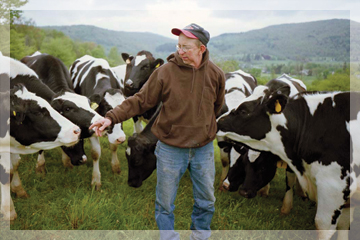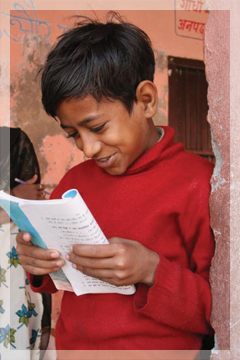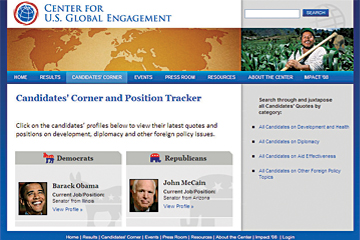Agricultural Markets

With Hewlett funding, the American Farmland Trust is exploring the development of viable agricultural policy options that serve rural interests in the United States and developing countries. Photo by Meredith Heuer, courtesy of the American Farmland Trust.
In 2007, the Hewlett Foundation began making grants to build a broad coalition in support of reforming agricultural policy in the United States. The Program began focusing on the market conditions that affect farmers in poor countries, particularly in East and West Africa, and directed its grantmaking in the following areas:
Improving market incentives. Tariffs, agricultural subsidies, and other forms of trade protection can have a devastating effect on poor farmers from developing countries. In 2007, the Foundation supported a coalition of nongovernmental organizations and business groups working to advance U.S. policies that would be fairer to farmers in developing countries. While efforts to improve U.S. policies failed due to the complicated politics of the issue, the effort raised public awareness of the need for reform. Nearly 200 editorials calling for fairer farm policy appeared in U.S. newspapers, and the coalition of advocates continues to grow.
The World Trade Organization’s on-again, off-again round of negotiations to topple barriers to free trade between rich and poor countries, dubbed the Doha Round, was relaunched in 2007—but quickly bogged down. Although the Foundation brought together key players from developed and developing countries to find ways to break the impasse, it does not appear that the talks will successfully conclude in 2008.
Foundation grantees are helping drive reform of the European Union’s Common Agricultural Policy. In 2007, one such grantee, EU Transparency, published data on subsidy payments to more than a dozen member states. The ensuing publicity helped persuade the European Commission to agree to publish farm subsidy data on its Web site, beginning in 2009. Our grantmaking also established a network of fifty research institutions in Latin America and Southeast Asia to collaborate on market and trade analysis, created training programs for trade policy analysts in six developing countries, and paired two dozen trade analysts from developing countries with experts from the developed world.
Ensuring that new infrastructure serves the needs of the poor. The Foundation is making grants to ensure that the interests of African farmers and rural communities are taken into account when governments make decisions about where and how to invest in new roads, bridges, and schools. This grantmaking effort will also connect farmers to business opportunities in the food-supply chain and provide mechanisms for transparency and accountability in decisionmaking around infrastructure investments.
Agricultural Markets Grants authorized in 2007.
2008 Goals
- Support organizations that are working to reform U.S. and E.U. agricultural and trade policies on biofuel imports from developing countries
- Support research into World Trade Organization cases against countries whose trade policies hurt the agricultural economy in poor countries
- Expand a project to strengthen regional agricultural information to farmers in West Africa
- Support efforts to advance policies that will open regional markets to farmers in Africa
- Support efforts to expand regional markets for trade in fertilizer in East Africa
For more information, please visit the Foundation Web site.




